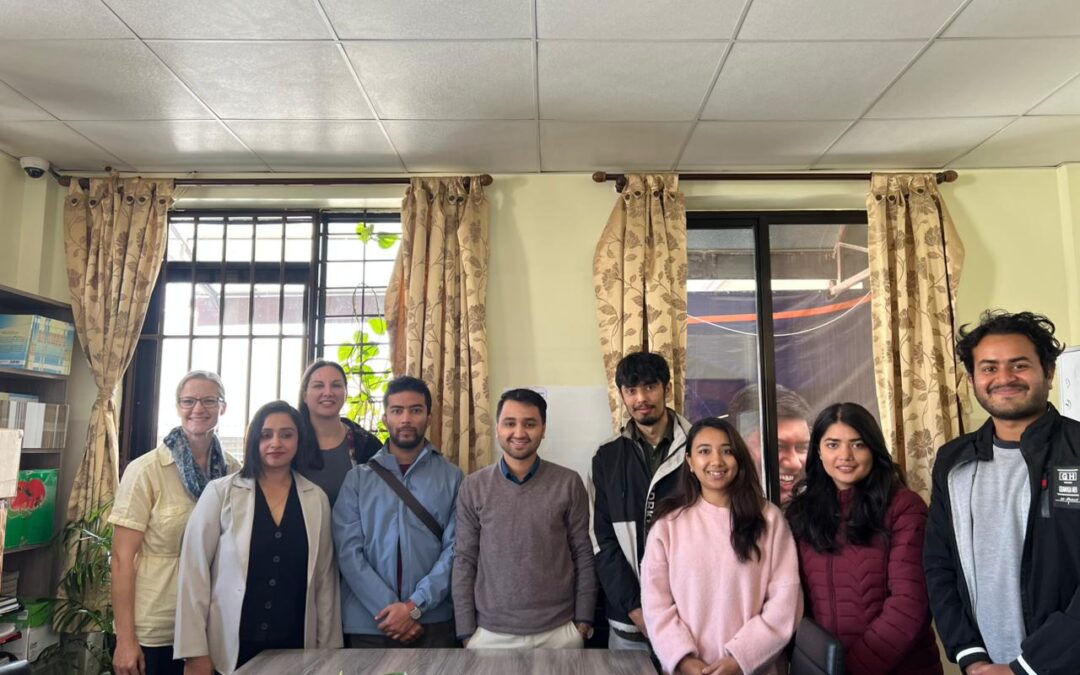This is it. We are in the final lap of this sprint, rushing to get things done and handing over the project for testing purposes. Half of the team was dedicated solely to finalizing the video to be presented at the final conference, while the rest worked on deploying the system and handing it over to our community partner for testing. The past four months feel magical, considering how we started the project with a lot of enthusiasm but little understanding, and how we are now wrapping it up with a well-deserved retreat at a community homestay in Kot Danda, Lalitpur, Nepal.
The entire Inspire UVIC Nepal team was excited about the retreat, as it had been on the table for a long time, and we all felt the need for a break from the hustle and bustle of Kathmandu city. We attended the final conference virtually in the early morning from the community homestay. The excitement and enthusiasm to showcase our project, transcending borders and seas to international partners, felt unreal. While our work is not over yet, as the Nepali teams will continue working through mid-January on bug fixes and last-minute feature additions, the initial feedback on the final product has been nothing but great.
Our team Successfully achieved several milestones during this period. However we encountered some challenges that slowed our progress. One such hurdle was finding a secure and efficient way to store images within our database without depending on external services. Additionally, the late introduction of a report generation feature required us to re-prioritize our efforts and inevitably delayed progress on other tasks. Balancing the final stages of software development with the production of the conference video also presented a significant challenge, requiring careful resource allocation and effective time management.
The challenges faced during this sprint provided valuable lessons for future improvement. A thorough upfront planning, effective communication and proper resources allocation can help to navigate such challenges and helps to maintain the project momentum. Learning from these obstacles, we can improve future projects by anticipating potential problems and creating more robust plans.

